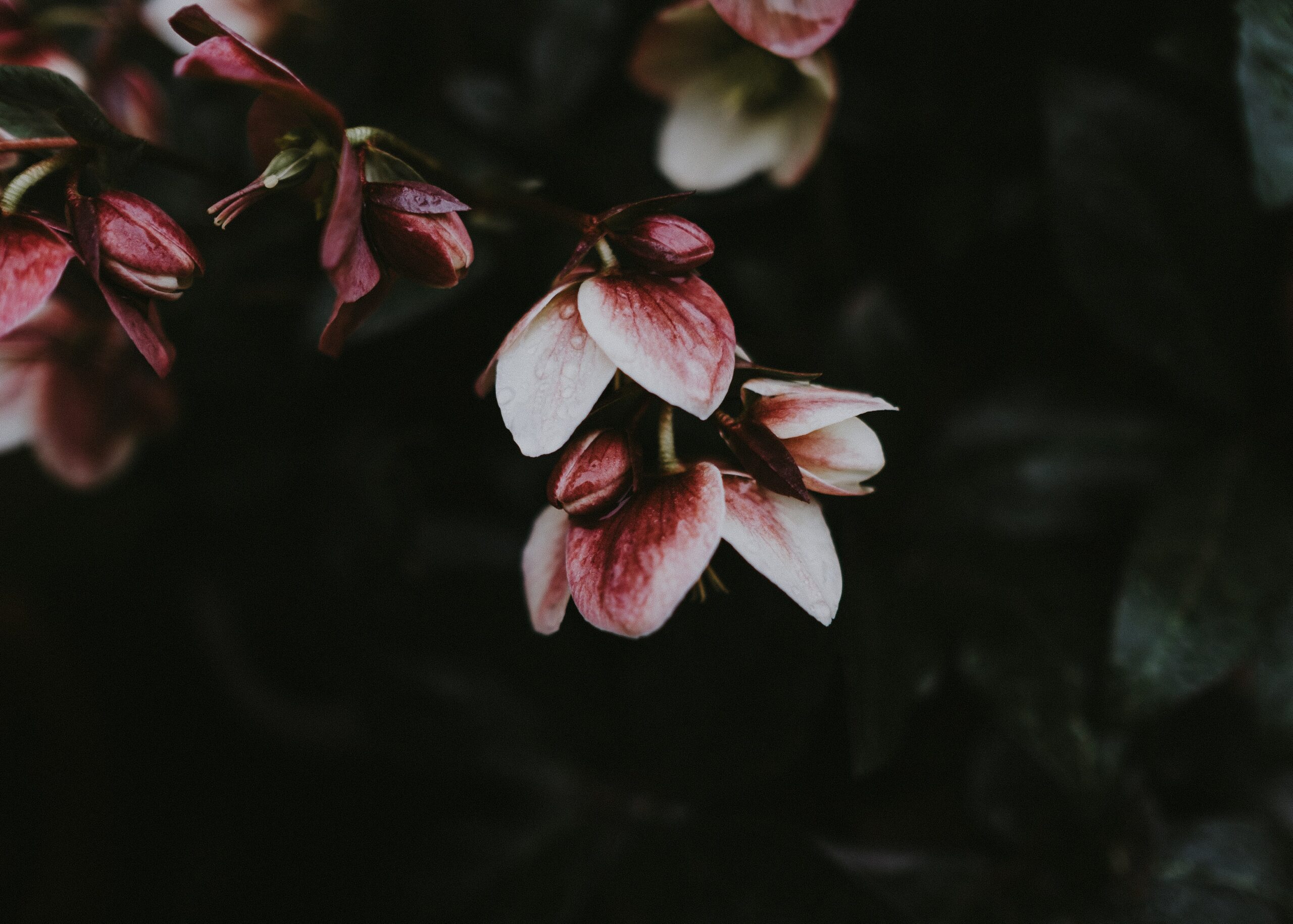If you’re on BookTok I know it can feel like it’s all dark romance and “no smut, no thanks 😤” all day long.
We’ve even seen strong backlash from the patriarchy, with creators asking if there even is anything out there to read other than “porn” (well, they say “corn” cuz TikTok, but y’know).
Most recently I saw a YA reader (I’m assuming she’s YA because a lot of her videos were dedicated to Hunger Games and she seemed on the young side), asking what even is the purpose of smut. Now, that video has been deleted and I tried to look at her profile to see if she had any related videos or questions (mainly to see if it was rage-baiting for traction), but I couldn’t find any.
So, I couldn’t determine if it was a genuine question, but I’m going to assume she got a lot of hate for it either way and deleted the video. Because we all know that there’s a darker side to BookTok that can be nasty af.
But anyway, I’m going to answer that question in good faith, because I think it’s a valid question.
And it deserves an honest answer.
I want to start off by saying that not everyone wants to read sexually explicit content, that is normal and that is okay. If you don’t want to read smut, please, feel free to skip it entirely.
I know very well which books get a lot of traction on BookTok and if that’s not your thing, do not feel at all pressured to read any of them. Just stick to what you enjoy. If you pick up a book and later find out it’s smutty, there’s no shame in DNFing.
Every book is not for every reader. Protect your peace.
Now, onto the issue at hand: what is the ✨purpose✨ of smut?
Fair warning: this will be a bit of a socioeconomic take, because I want to examine the purpose of erotic literature in a larger context (something we get regrettably little of these days).
I’m not going to define smut, because I’ve already done so here and I’ve looked at a short history of smut here.
What I want to examine here is the purpose smut serves. Why does it exist in the first place?
Because smut serves a purpose beyond mere arousal. It challenges societal norms and provides a platform for exploring sexuality in a way that society and education often fail to address.
And this is my first point: sex education is lacking.
I’m old now, so back when I was in school sex-ed was very biologically focused. It was about how the mechanics of impregnation, and the bare basics on periods and contraception.
There was some cursory discussion about pleasure, but nothing like the conversation is today. And certainly no discussion about gender identity.
I turned to romance literature and erotica when I wanted to know more. Too young to read those books? Probably. But it was better than what the boys did: consume porn.
Sex education, if provided at all, typically revolves around male pleasure and the avoidance of risks such as pregnancy and STIs.
When medically accurate sex education is lacking, it leaves young people uninformed about their own bodies, identities and sexual health.
This lack of comprehensive education disproportionately affects women and marginalised groups, perpetuating a cycle of disempowerment.
From an early age, cisgender, straight, white men are often afforded the privilege of learning about their bodies and sexuality without shame or stigma.
This knowledge forms the basis of a community where discussions about sex are normalised, contributing to a sense of empowerment.
Conversely, women and marginalised individuals navigate a landscape rife with shame and misinformation.
Historically, accessing accurate information about sexuality has been challenging for women and marginalised groups.
With the advent of the internet, avenues for learning and community-building have expanded, even if it has been slowly.
And now for the smut and its purpose.
Erotic literature has long served as a conduit for exploring sexuality outside the confines of traditional education.
Novels, fictional stories, and online forums provide a platform for discussing topics such as pleasure, consent, and queer sex—subjects often overlooked in mainstream discourse.
For many readers, engaging with erotic literature facilitates the unlearning of shame and the processing of trauma.
By embracing their desires and fantasies, individuals reclaim agency over their bodies and sexuality.
Women and marginalised groups are more and more vocal about their appreciation for smut.
Recommending erotic romance novels and sharing experiences gives us a sense of camaraderie and solidarity, challenging societal taboos and dismantling puritanical norms.
The impact of smut extends beyond individual readers—it has the potential to reshape societal structures.
By arming women and marginalised groups with knowledge and community, smut serves as a catalyst for social change.
As individuals gain confidence and autonomy over their sexuality, cracks begin to form in the patriarchal systems, because knowledge is power.

Smut is more than just a guilty pleasure.
Is it fun to read? Yes.
Does it turn you on? Hopefully!
But smut also offers a safe space for learning about yourself by exploring fantasies and desires, aspects of sexuality that may be taboo or stigmatised in mainstream culture, and not talked about in your circles.
Reading erotic romance — or smut, or erotica, or spice, whatever you want to call it — can be really empowering and affirming.
It’s a place where those of us who don’t feel represented in the mainstream find a place to exist without shame.
If a guilty pleasure is the only thing it has ever been to you, perhaps you’re lucky.
Or perhaps you’re still trapped in the confines of the patriarchy, blinded by values that do not represent you or truly support you.
Whether you read smut or not, understand that judging its existence does not decrease the pleasure and benefit others can derive from it.
Because even a great life can have a lot of stress and trauma and anxiety behind the scenes.
And to cope with those things, we read.
And we read whatever the fuck we want to read. Because we enjoy it, because it gives us a moment of respite, because it tickles our brains the right way.
Being able to have that temporary escape from the demands of everyday life, helps us be productive, outstanding, amazing, strong, independent women in society.
And what we read, in order to achieve that, is nobody’s business.
The only reason this narrative even exists is because it’s about women.

It’s about dictating what women should do.
Women “openly reading porn” makes people (those indoctrinated by the patriarchy) uncomfortable, so they’re gonna dismiss and belittle it.
Because a reading woman is dangerous.
To a woman who knows her own mind, men can only be a minor consideration.
— Marie Bashkirtseff
For decades, men have found ways of trivialising women’s interests, so this isn’t new.
Books written by women are called “women’s literature” (at best) or are pushed into other, “lesser” categories like New Adult, because heaven forbid books written by women just be titled “adult fiction”. Oh, no, no, only men can write those kinds of books.
If we were out in public reading children’s books, the looks and comments would be supportive and encouraging, because you’re focusing on motherhood and taking care of the children. Aww, that’s so sweet!
Yet, try to breastfeed your child in public and suddenly it’s too disgusting, because men don’t want to see breasts in the context of their main function. No, breasts should only ever be seen in sexualised contexts.

The reason men (the patriarchy) judges these books as no better than porn, is because they struggle to conceive of a form of fantasy and entertainment that is related to sexuality on more than just a basic level of the man ejaculating, that doesn’t solely revolve around male pleasure.
They can’t fathom a world or a mindset where the centre and focus isn’t a man.
And the focus of smutty books isn’t the sex.
Yes, it can be a large part of the story. But the characters, the story and plot, the worlds and adventures are what women want to read about.
The smut exists within those contexts.
Reading a smutty book can mean committing to a 300-page book, even a whole series of them with spin-off novellas, not just a quick 3 minute video on PornHub.
It isn’t a trivial thing.
And it doesn’t turn women into sex-crazed monsters. Actually, reading men written by women, reading how men can adore and even worship the women for who they are (not what their body can offer them), is allowing a lot of women to see how low the bar is for men IRL.
Yes, we have a lot of issues within the romance genre. There’s patriarchy everywhere, hey?
But on the whole, it’s providing a safe space, an escape from everyday stress, an opportunity to feel seen, and better mental health for those who read.
Whatever women do, they must do twice as well as men to be thought half as good. Luckily, this is not difficult.
— Charlotte Whitton
Want to get more out of reading books?

Grab this FREE guide on how to start a reading journal, complete with review templates, reading trackers and bingo sheets.
Understand yourself better as a reader, engage more with the books you read & make space for creative self-expression. Get it now!





